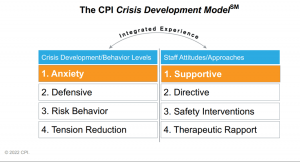Three posts in a row!
You may be familiar with Angela Watson’s work on her “Truth for Teachers” blog and podcast. It’s been a while since I’d checked in and I’m glad I did cause I found this.
The Swiss Cheese Model: Letting Go of “All or Nothing” Thinking (September 4, 2022)
The simple explanation of the model goes something like this: there is not one strategy that will solve a complex issue in a classroom or school. These complex issues needs to be addressed through a multifaceted approach because there is no one strategy-fits-all. We use the metaphor of a slice of swiss cheese being a single strategy. The strategy will work for some students but the holes represent how some students will slip through the hole and continue to struggle. So, we layer another slice of cheese (another strategy) which will cover some of those holes and help some of the remaining students find success. You can add a third slice and you get the idea – layers of strategies & supports to tackle complex issues.
I like this analogy as it lines up well with my messaging with school teams – it’s going to take a team approach with different strategies in action to move the student towards learning (which is what we do – develop & strengthen a student’s skill set).
The article does a much better job of explaining than I did. Give it a read and, as always, tell me how you applied it by posting a comment or two.

